No takeouts, no fast fashion, even no sanitary pads or tampons. Yu Yuan is a Beijing resident who has been committed to a "zero-waste" lifestyle since 2016.
CGTN Nature visited Yu's house in the hutongs, or narrow alleyways that are characteristic of the city, to learn how she managed to bring waste to the minimum in a world drowning in non-recyclable materials and food loss.
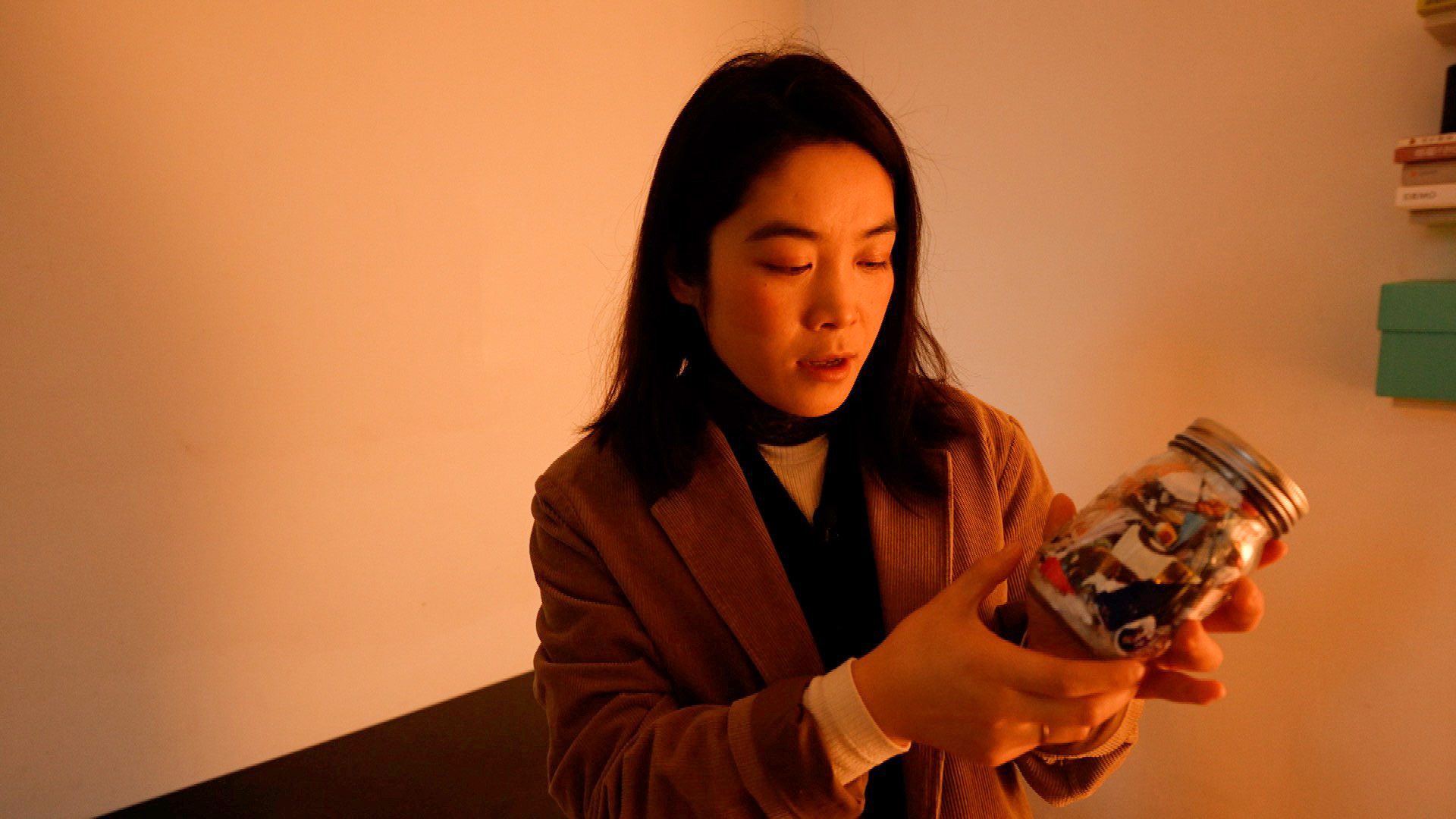
Yu holds a pint jar, showing all the waste she and her partner generated this year. /CGTN
Yu holds a pint jar, showing all the waste she and her partner generated this year. /CGTN
"To live a zero-waste life, first of all we need to know what our wastes are," Yu said as she held a small jar, showing all the scraps she and her partner generated this year.
A zero-waste lifestyle is not about limiting someone to just a jar of trash. What's "more important for us is to reduce avoidable and unnecessary waste," Yu argued.
Minimizing her footprint on the environment has saved Yu a lot of money and brought her more time and happiness. "Most of the time, we don't have to buy new things. We can find second-hand options online or through our friends," said Yu, who's originally from central China's Wuhan. "It's also a way to extend the life of clothes."

Yu's scarf and vest are second-hand items. /CGTN
Yu's scarf and vest are second-hand items. /CGTN
Yu used to be a typical consumer, snapping up fast fashion and buying without thinking twice... until she realized she was not happy.
"It's like I was owned by these things instead of me owning them, and I felt these [items] were controlling my life," she said.
In 2016, as she was moving apartments, the young girl was shocked at how many clothes she had. Some garments were even untouched, with price tags still on.
Now, Yu's wardrobe only has the basics, and she's stopped buying new clothes for years.
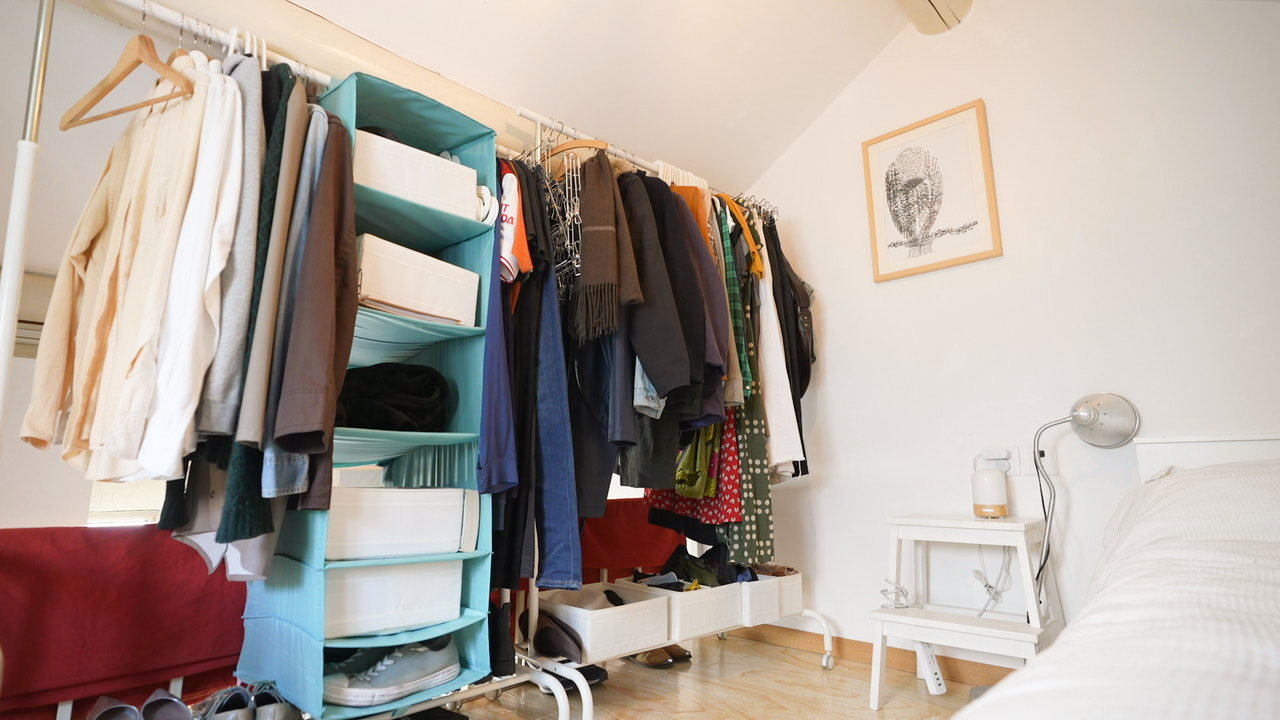
Yu's wardrobe is minimal but functional. /CGTN
Yu's wardrobe is minimal but functional. /CGTN
Food
Food delivery has become increasingly popular for urban residents, especially among young people who either lack time or cooking skills. But with the surge in takeaways comes a tsunami of single-use plastics and food waste.
Yu and her boyfriend never order in. They either cook at home or eat in restaurants.
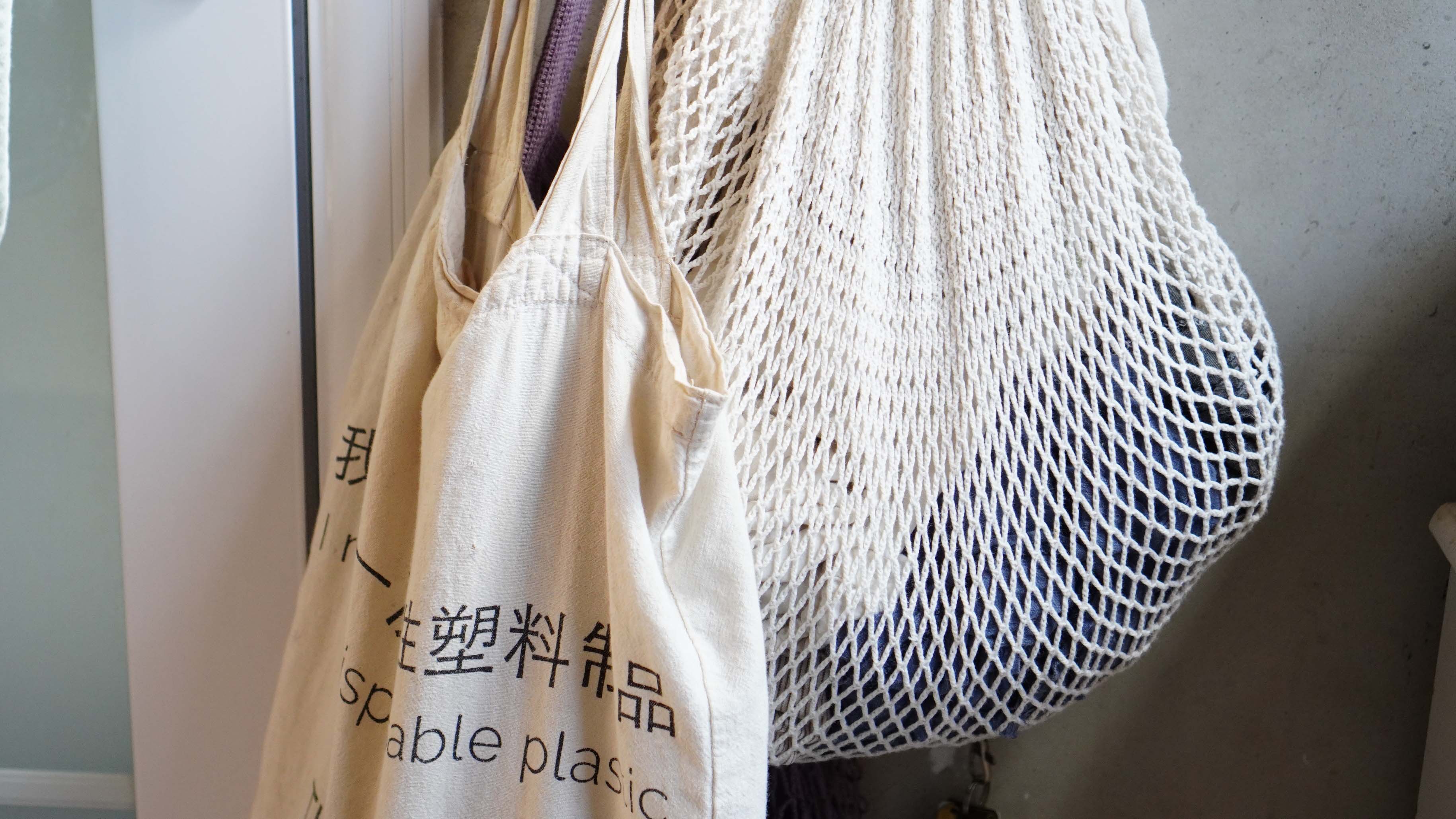
Reusable bags that Yu uses for grocery shopping. /CGTN
Reusable bags that Yu uses for grocery shopping. /CGTN
"Planning is very important," Yu said. Before they go to the local market, they make a list and bring reusable bags and containers with them.
She uses cotton mesh bags for dry stuff such as fruit and vegetables, tin containers for meat and tofu and glass jars for nuts and spices. Not a single plastic item is in sight.
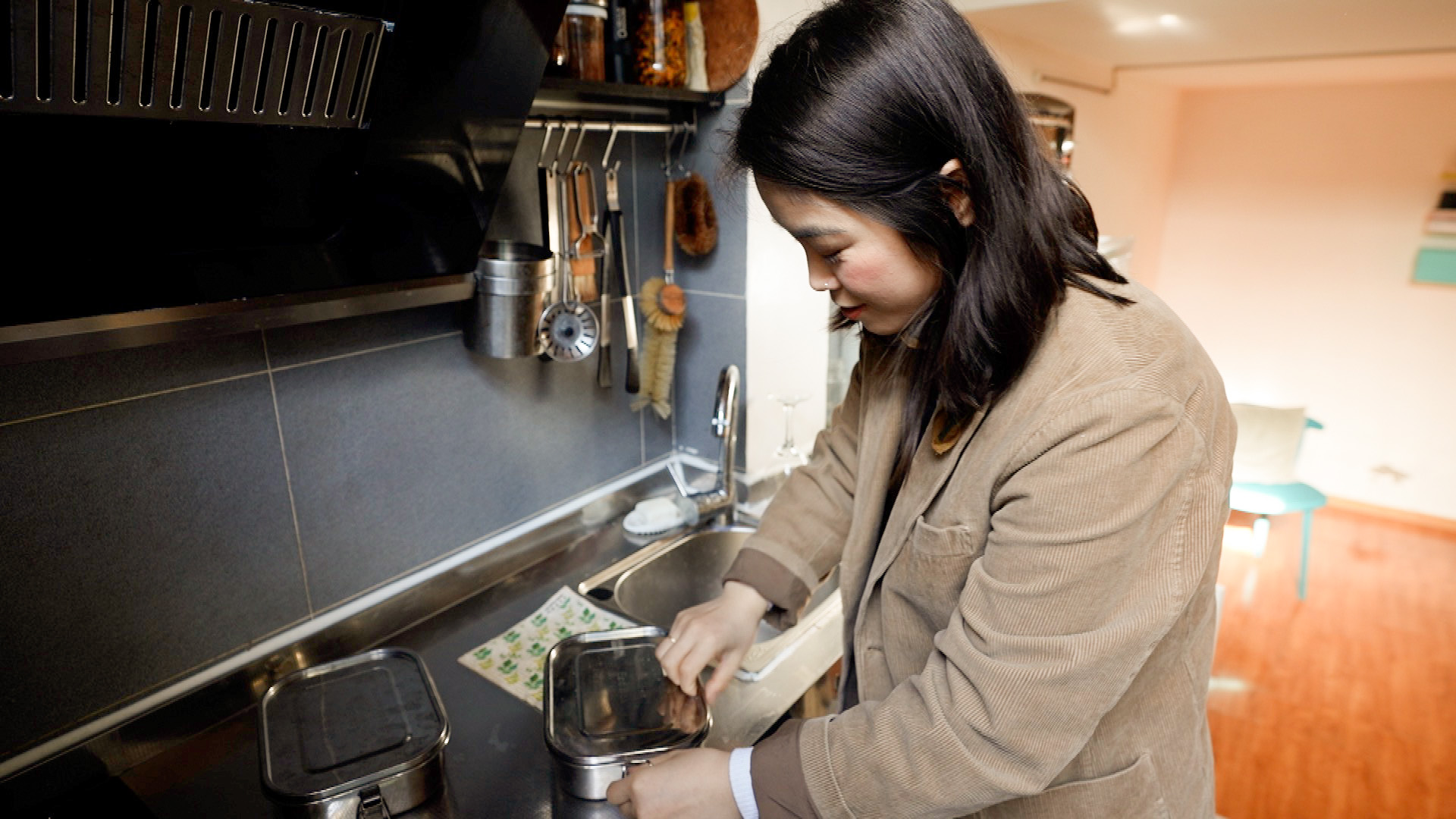
The tin containers Yu uses to store food. /CGTN
The tin containers Yu uses to store food. /CGTN
In the refrigerator lies a big bowl of kitchen garbage. The degradable waste is frozen to avoid the smell. From time to time, the couple will empty the bowl and put the waste into a compost bin, turning it into organic soil for flowers and plants.
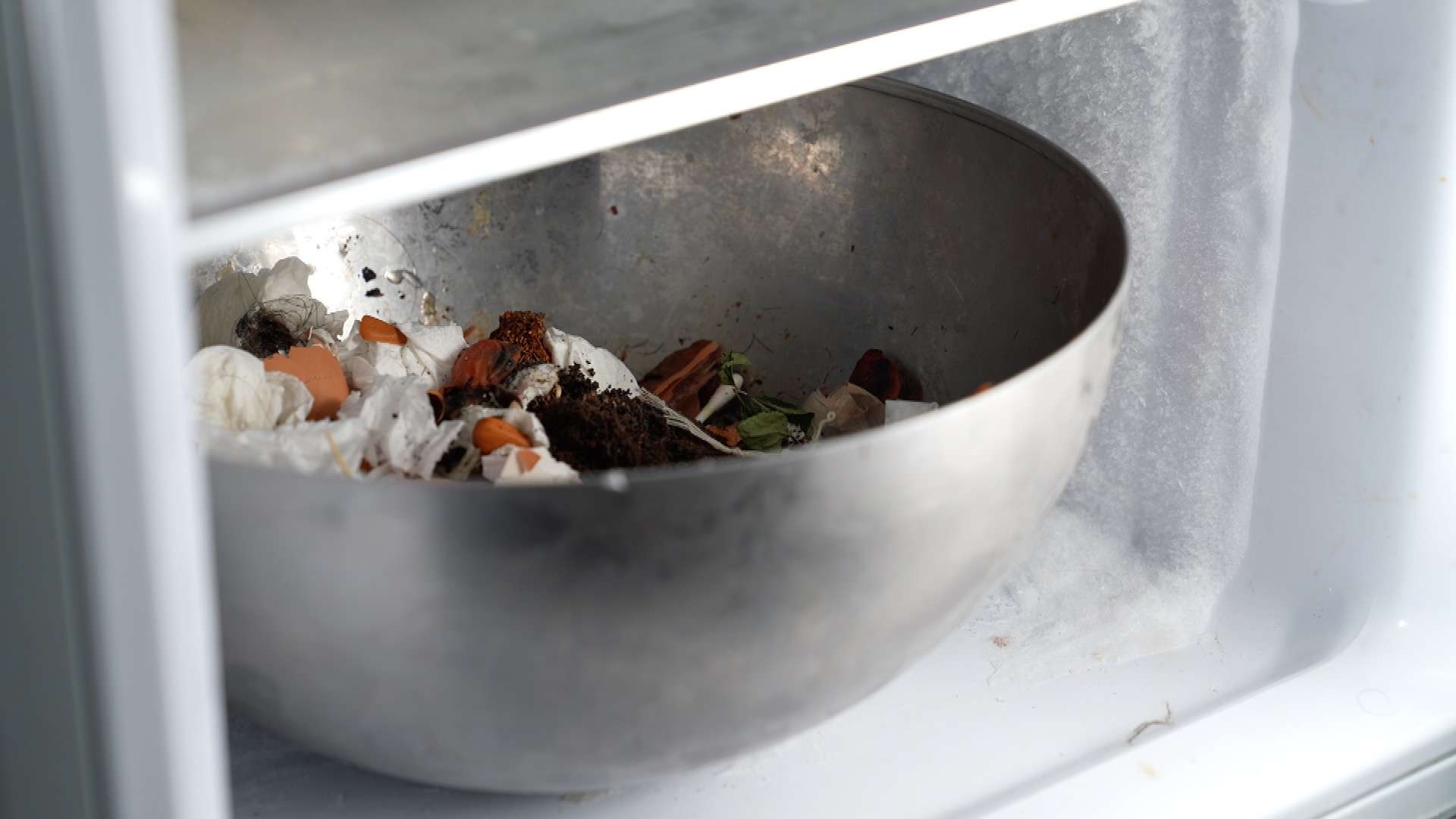
Yu puts kitchen trash in the fridge to make sure it doesn't smell. /CGTN
Yu puts kitchen trash in the fridge to make sure it doesn't smell. /CGTN
Day-to-day life
Everyday goods that Yu uses are either recyclables or plastic-free, such as solid toothpaste and shampoo bars. Even the feminine hygiene products she uses are sustainable.

The everyday goods Yu uses are either plastic-free or recyclable. /CGTN
The everyday goods Yu uses are either plastic-free or recyclable. /CGTN
Most of the menstrual products on the market are disposable with research showing that period pads contain up to 90% plastics and tampons up to 6%.
But the young woman has replaced conventional sanitary pads with products made from rubber, silicon or cloth.
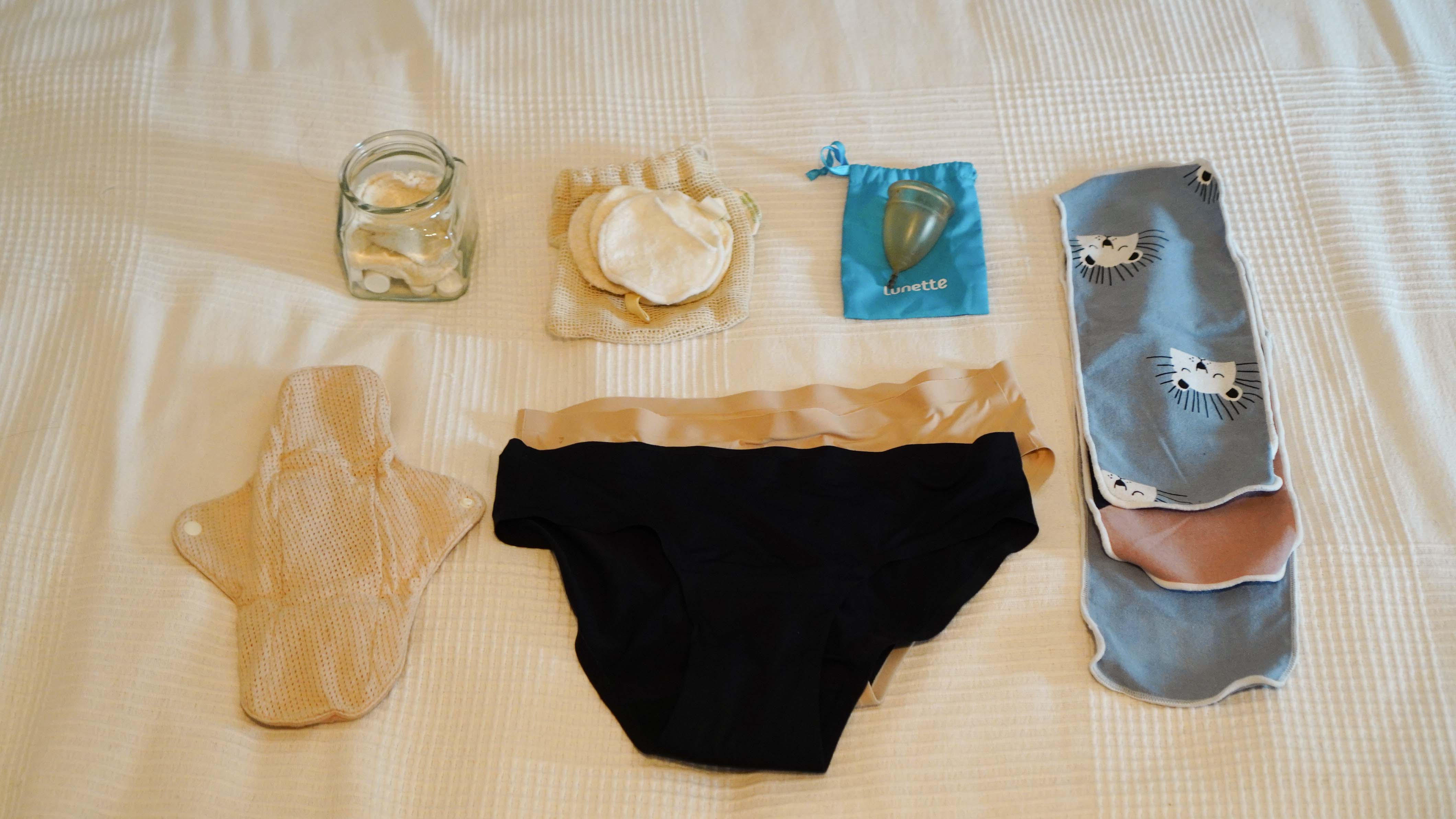
Menstrual cups and washable pads: all of Yu's female hygiene products are reusable. /CGTN
Menstrual cups and washable pads: all of Yu's female hygiene products are reusable. /CGTN
For most people, it's hard to understand how to live a zero-waste life, and generating a jar of trash in a year is unbelievable. But even for Yu, some plastic waste is unavoidable, such as medicine packages, the thin plastic cover from the reusable barrels for water, and snack wrappers. But the point according to her is to cut unnecessary waste to zero.
"A sustainable life is not to refuse all plastic bags to produce absolutely no waste. The most sustainable way is to make the best use of everything," she said.
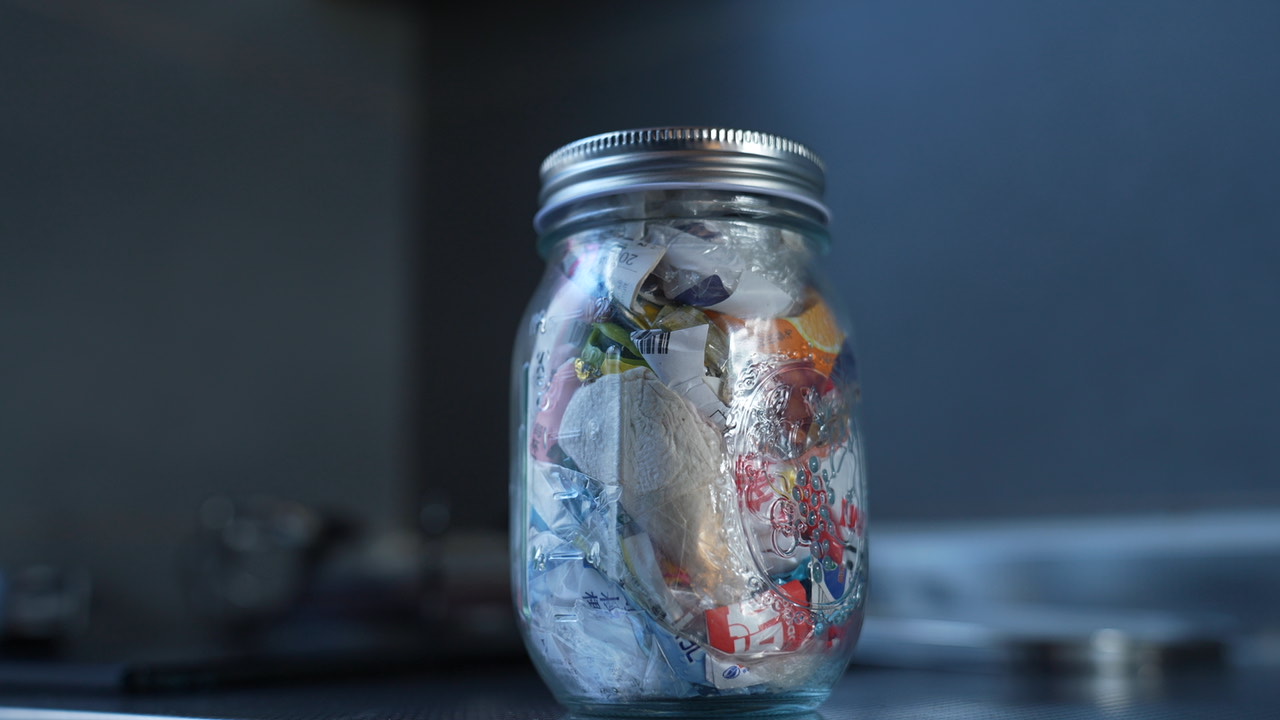
The zero-waste lifestyle is not aimed at limiting someone to just a jar of trash. What's "more important for us is to reduce avoidable and unnecessary waste," says Yu. /CGTN
The zero-waste lifestyle is not aimed at limiting someone to just a jar of trash. What's "more important for us is to reduce avoidable and unnecessary waste," says Yu. /CGTN
(If you want to contribute and have specific expertise, please contact us at nature@cgtn.com.)

